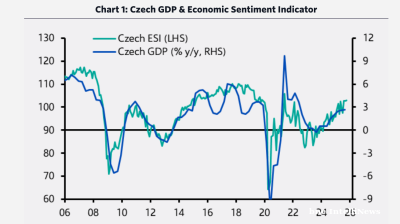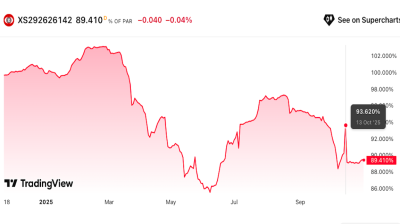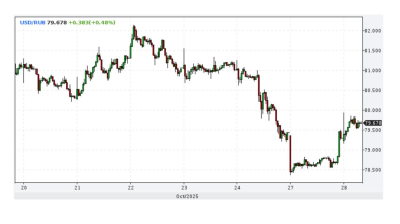Seasonally adjusted Czech retail sales fell 1% month-on-month at constant prices in May after very strong growth in previous months, and marked the slowest growth in 2 years. The only exception was sale of motor vehicles that stagnated at constant prices, the Czech Statistical Office data revealed on July 9.
At the same time, adjusted retail sales increased at constant prices by 2.7% y/y -- well below market expectations of a 5% growth – in the smallest gain in retail trade since September of 2018, as sales slowed for food, beverages & tobacco, amongst other categories.
In monthly terms, sales for sale of non-food goods and sale of food dropped by 0.1% m/m and 2% m/m, respectively, they grew by 5.6% y/y and by 0.4% y/y. The sales for sale of automotive fuel decreased both monthly and annually by 1.8%, and 0.7%, respectively. Adjusted sales for sale and repair of motor vehicles grew by 1.4% y/y and sales for sale of motor vehicles (including spare parts) by 3.1%.
Retail sales online and via mail order services grew by 19.4%, leading to an increase in sales y/y. UniCredit economist Jiri Pour, quoted by the Czech News Agency, says decreasing consumers confidence may be behind the poor growth figures. "It's been disrupted mainly by fears of developments abroad, where dangers of trade wars among others are tangible," said Pour, adding that raising wages and extremely low unemployment can still boost consumption, which will remain to drive the economic growth.
“All in all, this was a surprisingly weak figure for retail sales in May (a similar trend has been seen in Hungary, Poland and Romania), but we believe it might be combination of one-off factors,” said ING chief economist Jakub Seidler.
“Year-to-date growth remains at 5%, the same as last year, but some slowdown this year is likely as household confidence declines due to concerns about an economic slowdown. While the labour market is tight, as confirmed by June numbers from MinLab, households are signalling higher intentions to save, which might weigh on spending in the second half of the year, in our view,” he added.
Data

Russia’s manufacturing PMI falls to its lowest level since May 2022 in October
Russia’s manufacturing sector saw a deeper contraction in October, with output, new orders, and business confidence all weakening, according to the latest Purchasing Managers’ Index (PMI) data from S&P Global, published on November 1.

Czech growth accelerates as domestic demand-side pressure builds
The Czech economy delivered an unexpected acceleration in the third quarter, marking a clear shift from its earlier position as a regional underperformer to one of Central and Eastern Europe’s fastest-growing economies.

Eurobonds of Istanbul-listed Zorlu units offer attractive yields amid rating downgrades and no default expectation
Debut paper currently offering 14-15% yield.

Ruble strengthens as sanctioned oil companies repatriate cash
The Russian ruble strengthened after the Trump administration imposed oil sanctions on Russia’s leading oil companies, extending a rally that began after the Biden administration imposed oil sanctions on Russia in January.



